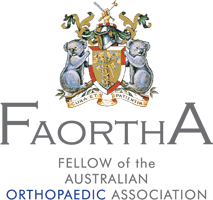Smoking
Patients who smoke or use nicotine patches before surgery have significantly more post-operative complications with higher rates of needing further surgery. Stopping smoking, even only 4 weeks before surgery, may reduce the risks of slow-wound healing, blood clots and infection.
Alcohol
Patients who consume alcohol frequently may have a significantly increased risk for post-operative complications after joint replacement. After 3-4 weeks of avoiding alcohol, the body is able to heal better and there are reduced risks of post-operative complications.
Feeling unwell
Please contact us if you feel unwell shortly before the date of surgery. This includes cough, fevers, runny nose, sore throat or any other mouth/bladder/bowel issue. Surgery will need to be delayed until any infections are resolved to reduce the risk of post-operative complications.
Skin tears / scratches / ulcers / infection
Please contact us if this occurs prior to your surgery. The increased risk of infection might mean that your surgery will need to be delayed, especially if it’s on the leg that is due to be operated on.
Pre-operative skin cleansing
Please wash your whole body with a chlorhexidine wash/wipe at least the night before, and the morning of your operation. This can be purchased from a nearby pharmacy. Sleep in clean pyjamas and bed linen. Please do not use any moisturiser, lotion or powder on the day of the operation.
Hair removal
As shaving before the operation can increase the risk of infection, please do not use a razor to remove hair from the operative site for up to 1 week prior to the surgery. If needed, hair will be removed with electric clippers by the surgical team immediately prior to the operation.
Medications
Most regular medications can be continued. It is okay to take your morning medications on the day of surgery with a sip of water.
Exceptions include blood-thinning medications, diabetic medications and anti-inflammatory medications – Please discuss these with your surgeon, anaesthetist and medical specialist as they may need to be stopped 1-4 weeks prior to the operation
Fasting
Fasting before surgery is important to minimise the chance of fluid from your stomach going into your lungs.
- For a morning surgery – please do not eat anything from midnight the night before, but you may drink water or clear fluids throughout the night up until 06:00am. For joint replacement patient please drink 2x DEX drinks at 06:00am
- For an afternoon surgery – finish eating breakfast by 07:00am, then do not eat anything after. You may drink water or clear fluids until 10:00am. For joint replacement patients please drink 2x DEX drinks at 11:00am.
What to wear
Please dress in clean, comfortable clothing
What to bring
Please bring all imaging (x-rays/CT/MRI), a list of your current medications as well as your medicare card and private insurance details. You should also bring basic toiletries as well as some comfortable changes of clothes and glasses if needed. Personal electronic devices or books/magazines can be useful whist waiting for your operation. Please leave valuables at home including any jewellery that can be removed.
After your surgery
You will be discharged home when your pain is well controlled, and you are mobilising safely. Our physiotherapists will determine if you need a period of assistance with crutches or a walking aid. Try and eat a light meal once you feel hungry.
Driving after the operation
You are not allowed to drive for a minimum of 24hrs after any operation. You will need to make arrangements for someone to drive you home. Due to the risk of nausea and vomiting please do not eat or drink anything just before, or during the drive home. When you can drive depends on the type of operation, the limb that was operated on and any on-going post-operative restrictions. It is not safe to drive under the influence of strong/sedating pain-killers.
Pain relief
You will be discharged home with pain relief (either a prescription or a medication pack). Please take this as directed to provide a level of background pain relief as well as break-through pain relief as required. It’s important to take the medication as you start to feel discomfort, and not wait until you are in severe pain. Once you are in severe pain, it’s harder to get the pain back under control.
Post-operative weight-bearing and activity
Please follow the specific post-operative weight-bearing instructions and physical restrictions as directed. These have been advised to prevent any injury and avoid compromising the outcome of your surgery.
Physiotherapy
Ideally you will have an appointment booked in with your physiotherapist before leaving the hospital. Most of the common conditions and operations will have a post-operative protocol to guide your physiotherapist on the post-operative rehabilitation.
Wound care
All wound dressings should remain clean, dry and intact until your post-operative follow-up. If the dressings are soaked or start to lift off, they can be replaced by new waterproof dressings. Sutures will usually be removed at the post-operative follow-up 10-14 days after the operation.
Please contact us immediately if you or your primary health care team have concerns with the wound such as increasing redness, discharge, pus, fevers or generally feeling unwell.
Follow-up
You will usually be reviewed by Dr. Schwarz 10-14 days after your operation. Please contact the rooms if this appointment is not already booked.





